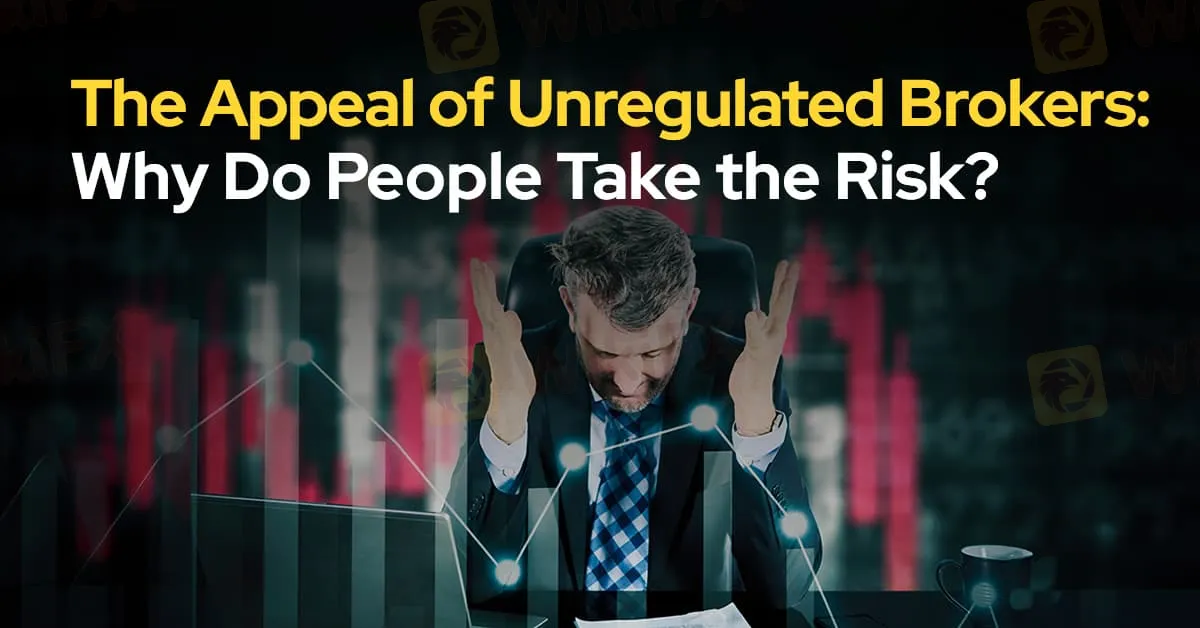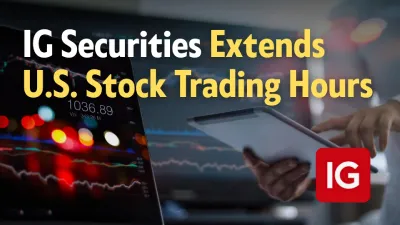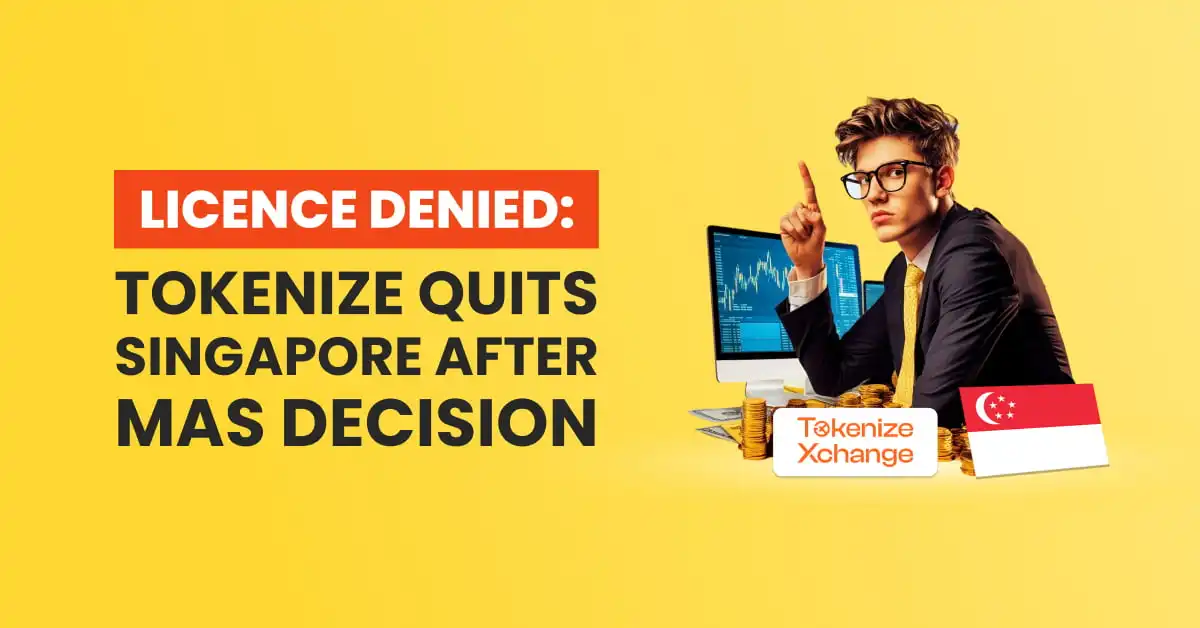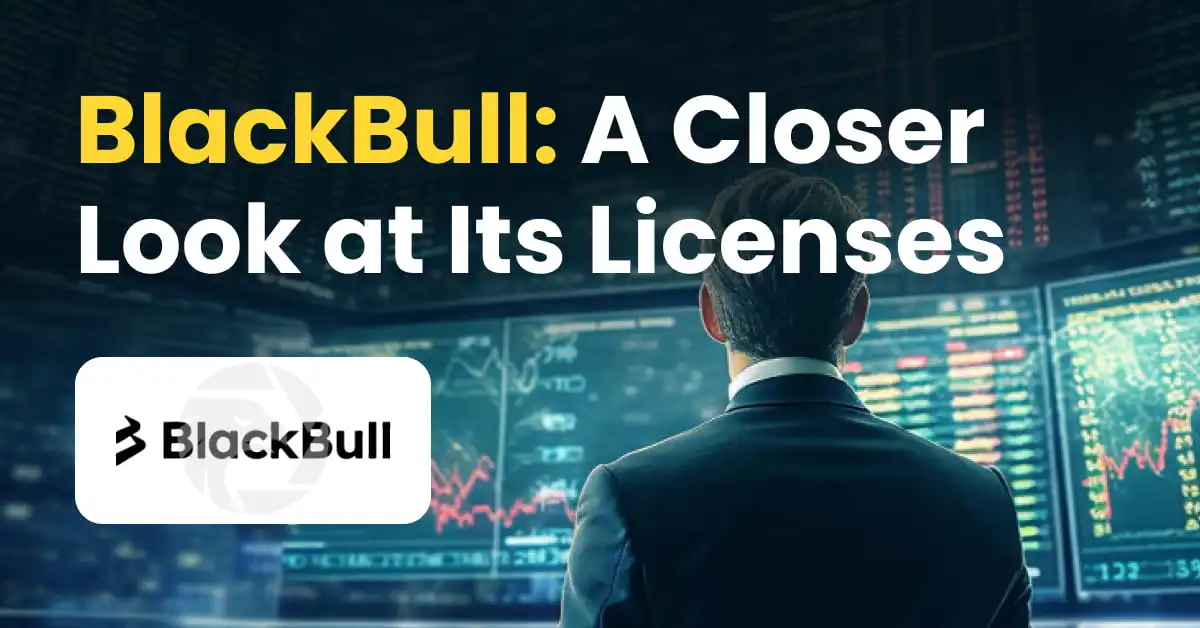简体中文
繁體中文
English
Pусский
日本語
ภาษาไทย
Tiếng Việt
Bahasa Indonesia
Español
हिन्दी
Filippiiniläinen
Français
Deutsch
Português
Türkçe
한국어
العربية
The Appeal of Unregulated Brokers: Why Do People Take the Risk?
Abstract:While it seems like a no-brainer to opt for a broker with regulatory oversight, many traders are still drawn to unregulated brokers. The question is: why do some traders take the risk?

When navigating the world of online trading, one of the most critical decisions traders face is choosing between a regulated or unregulated broker. While it seems like a no-brainer to opt for a broker with regulatory oversight, many traders are still drawn to unregulated brokers. The question is: why do some traders take the risk? What factors make unregulated brokers so appealing, and could they ultimately lead to costly mistakes?
One of the most cited reasons is the promise of higher leverage. Unregulated brokers often offer much higher leverage ratios than their regulated counterparts, allowing traders to potentially amplify their returns on smaller capital. While regulators, such as the European Securities and Markets Authority (ESMA), impose leverage caps to protect traders from extreme losses, some traders view these limitations as a hindrance to maximizing their profits. Unregulated brokers remove such barriers, making them attractive to traders with a high-risk appetite.
Another draw is the perceived freedom from bureaucratic constraints. Regulated brokers must adhere to strict guidelines that can sometimes result in slower execution speeds, additional verification processes, and limited product offerings. Traders seeking flexibility may prefer the seemingly unrestrained environment of an unregulated broker, where processes are often faster and more accessible.

However, the very same factors that make unregulated brokers attractive could also be their downfall. A lack of oversight means a lack of accountability, and in the fast-paced world of online trading, this can lead to serious red flags. Fraudulent activities, such as price manipulation, unfair trading conditions, or even the outright refusal of withdrawal requests, are not uncommon. Traders may also encounter sudden changes in trading conditions, such as spreads widening without notice or even asset unavailability, leading to unanticipated losses.
The question remains: is the promise of higher leverage and fewer constraints worth the potential risks? For some traders, the answer may be yes. They believe their skills and knowledge can mitigate the risks associated with unregulated brokers. However, for others, the red flags—ranging from limited customer protection to the possibility of fraudulent activity—are too significant to ignore.
Ultimately, the debate boils down to whether the short-term rewards of unregulated brokers are worth the long-term risks. Should traders gamble on the potential for greater profits, or is the safety net provided by regulation too valuable to discard? As with many aspects of online trading, the decision may depend more on a trader's risk tolerance than on any clear-cut answer.

Disclaimer:
The views in this article only represent the author's personal views, and do not constitute investment advice on this platform. This platform does not guarantee the accuracy, completeness and timeliness of the information in the article, and will not be liable for any loss caused by the use of or reliance on the information in the article.
Read more

IG Securities Extends Trading Hours for U.S. Stocks and ETFs
IG Securities announces extended trading hours for U.S. stocks, ETFs, and CFDs, effective July 21, 2025. Learn about the trading hours change and after-hours trading in Japan.

Licence Denied: Tokenize Quits Singapore After MAS Decision
The Monetary Authority of Singapore (MAS) has denied Tokenize Xchange’s application for a Major Payment Institution (MPI) licence, prompting the cryptocurrency platform to cease its operations in Singapore and shift focus to Labuan, Malaysia.

BlackBull: A Closer Look at Its Licenses
When selecting a broker, understanding its regulatory standing is an important part of assessing overall reliability. For traders seeking to protect their capital, ensuring that a platform operates under recognised and stringent oversight can make all the difference. Keep reading to learn more about BlackBull and its licenses.

Dark Side of AETOS: They Don’t Want You to Know
AETOS is an Australia-based broker. All over the internet, you will find positive reviews about this broker, but no one is talking about the risks involved with AETOS. However, we have exposed the hidden risks associated with AETOS
WikiFX Broker
Latest News
Global week ahead: Banking bellwethers and a tariffs waiting game
CNBC Daily Open: The silver lining of positive earnings could be too blinding
Brexit made businesses abandon the UK. Trump's hefty EU tariffs could bring them back
CNBC Daily Open: Solid earnings beats might mask tariff volatility these two weeks
Mastering Deriv Trading: Strategies and Insights for Successful Deriv Traders
Jeep-maker Stellantis expects first-half net loss of $2.7 billion as tariffs bite
BlackBull: A Closer Look at Its Licenses
Top Wall Street analysts are confident about the potential of these 3 stocks
Retirees are fleeing these 10 U.S. cities—most are in states where you need over $1 million to retire
Singapore dollar exhibits safe-haven currency features. But it's no yen or Swiss franc — yet
Currency Calculator


